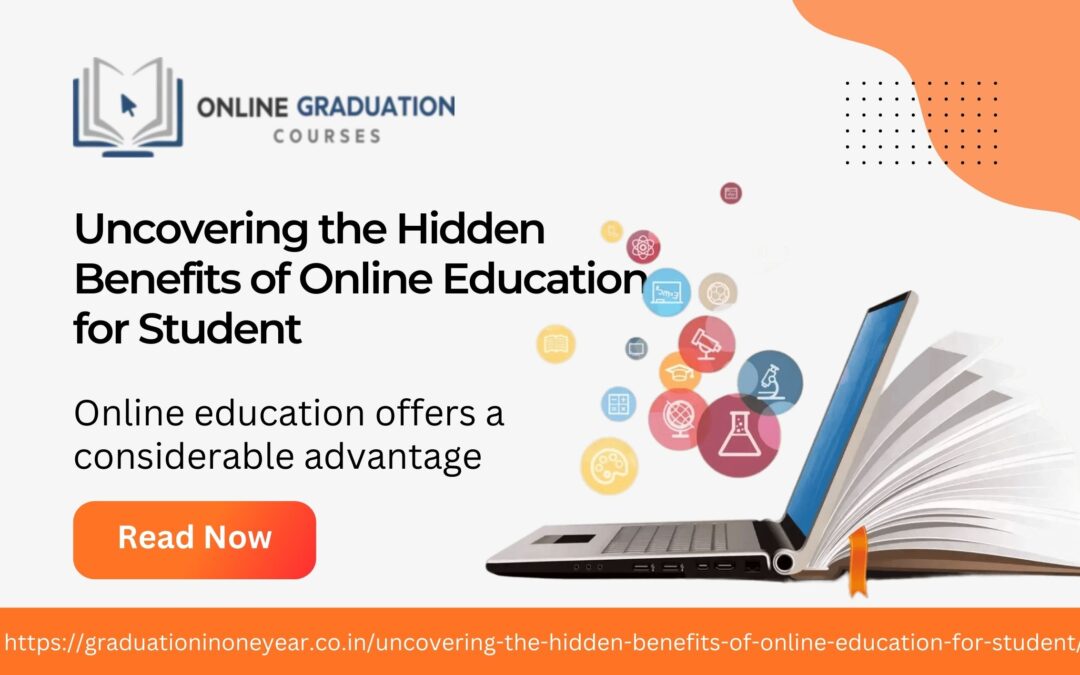The world of education has gone through significant transformations over the years. One of the most significant changes in recent times has been the rise of online education. Online education, also known as e-learning or distance learning, involves using digital technologies to access educational materials and interact with instructors and peers remotely.
graduation in one year providing students with access to a wide range of courses and learning resources through the internet. These resources may include video lectures, reading materials, quizzes, and assignments. Students can complete these materials at their own pace and from anywhere in the world with an internet connection. Communication with instructors and fellow students often takes place through online platforms such as email, discussion forums, and video conferencing.
Table of Contents
Access to Education: Breaking Down Barriers with Online Learning
One of the most significant benefits of online education is that it helps to break down barriers to access With online learning, students who live in remote or underserved areas can access high-quality educational resources that they may not have had access to otherwise. Additionally, students who have disabilities or other barriers that make attending traditional brick-and-mortar schools difficult can also benefit from the flexibility of online learning.
also helps to remove geographical barriers, enabling students to study at universities and colleges from anywhere in the world without needing to relocate. This can open up new opportunities for students to pursue their educational goals and careers.
Cost-Effective Education: Affordability and Value in Online Learning
Online education offers a considerable advantage in terms of affordability compared to traditional higher education. Students pursuing a degree through a brick-and-mortar institution often face the burden of prohibitively high tuition fees and living expenses, leading to significant amounts of debt. On the other hand, online courses such as BA course can provide a more cost-effective option with lower tuition fees, no commuting costs, and flexible study options that allow students to work while pursuing their education.
Despite the lower costs and can still provide high value to students. Many online courses and programs are designed and taught by experts in their field, providing students with access to the latest research and knowledge in their chosen subject areas. also allows students to develop skills in areas such as time management, self-discipline, and independent learning, which can be highly valuable in today’s workforce.
Measuring Success: Evaluating the Effectiveness of Online Education
As with any form of education, it is essential to evaluate the effectiveness of learning. While many benefits, it also has its challenges, such as the lack of face-to-face interaction with instructors and peers.
To measure the success of institutions can use a variety of methods, such as student satisfaction surveys, completion rates, and employment outcomes. Additionally, institutions can evaluate the quality of their online courses and programs through accreditation processes, which ensure that they meet rigorous standards of educational excellence.
The Future of Education: How Online Learning is Shaping the Landscape of Higher Education
Online education has already had a significant impact on the landscape of higher and influence is set to continue in the future. As technology continues to evolve, online education is likely to become even more sophisticated, with new tools and platforms emerging to enhance the learning experience.
Online education is also likely to become increasingly integrated with traditional brick-and-mortar institutions, with hybrid learning models that combine face-to-face learning becoming more prevalent. Additionally likely to become more personalized, with adaptive learning technologies that can tailor educational content to individual students’ needs and abilities.
Conclusion:
Online education has transformed the way we think about breaking down barriers to access, offering affordability, and providing high value to students. While it has its challenges, the future of looks bright, with new technologies and teaching methods emerging

